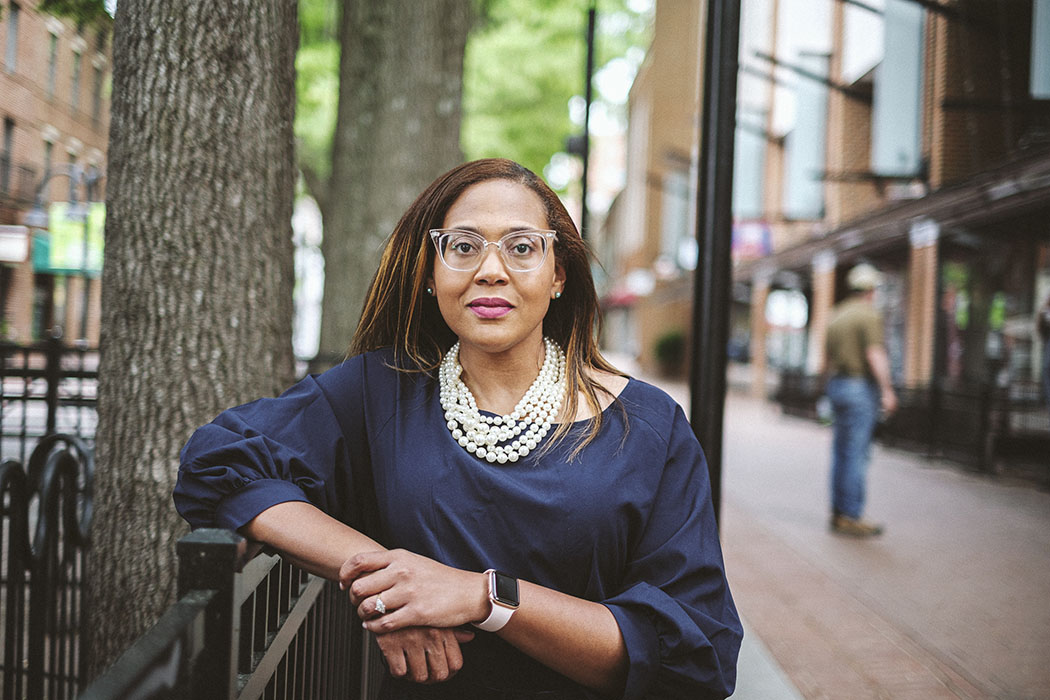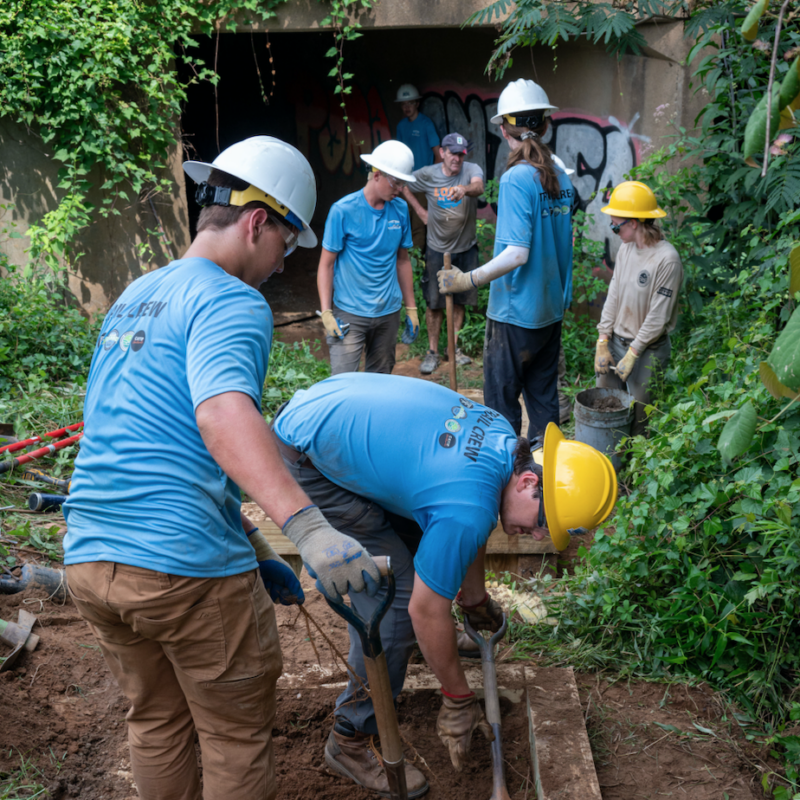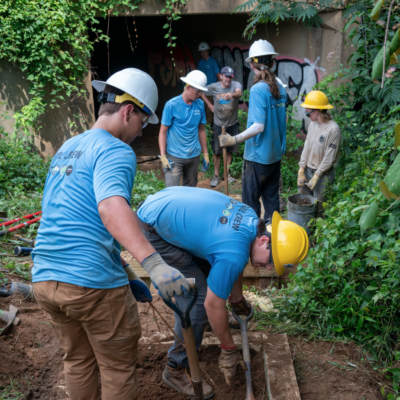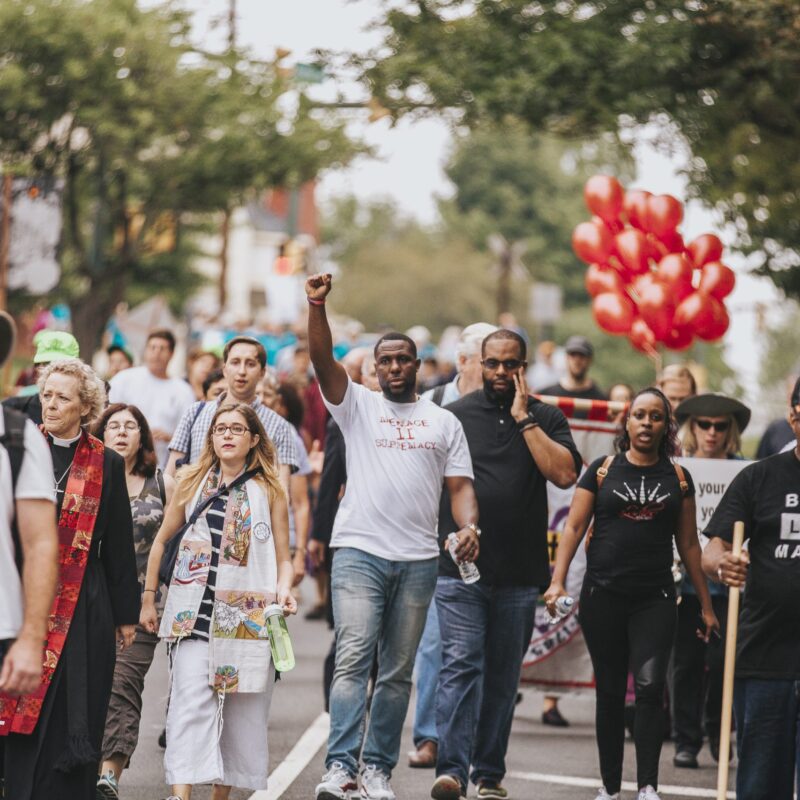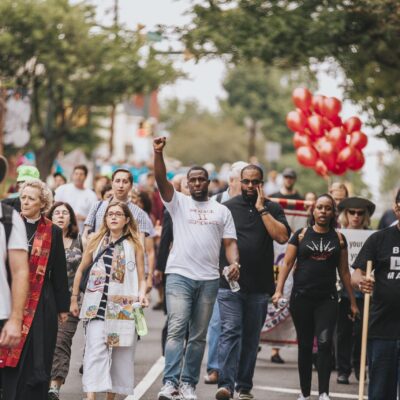While serving as a magistrate judge in Virginia’s 23rd judicial circuit, Ashley Reynolds Marshall heard a case that made her rethink her entire career. An undocumented woman, who had fled violence in Honduras, needed protection from her abusive husband. Marshall offered to have the husband kicked out of the house and issue a restraining order, but the woman decided against it—she was terrified her husband would hurt her or their children, or call U.S. Immigration and Customs Enforcement to get her deported. And because her husband had not allowed her to learn English, the woman could not start the naturalization process to become a United States citizen.
“I couldn’t sit with the fact that because of her trauma, she wasn’t able to go through a process that she so desperately wanted to do, and there wasn’t anything I could do,” says Marshall, who was born and raised in Roanoke. “I realized that I wanted to be able to impact people before I saw them in the magistrate’s office, where my options were limited.”
So Marshall cast aside her black robe and picked up a master’s in public administration from Virginia Tech, and then she threw herself into public service, working with several nonprofits in the Roanoke area. Now, a decade after leaving the courtroom, she hopes to further address the needs and concerns of marginalized communities as Charlottesville’s first deputy city manager for racial equity, diversity, and inclusion.
“To see a community have a recognition that [racial equity] is an important consideration when you are trying to figure out how to best support your citizens was really impressive,” says Marshall, whose first day on the job was earlier this month. “It doesn’t happen very often. I really just felt moved to throw my hat in the ring.”
The process of creating the position began in August 2019, but hiring was slowed by COVID.
Marshall will monitor Charlottesville’s new Office of REDI, Human Services and Social Services departments, Office of Human Rights, and Police Civilian Review Board, ensuring the city is tackling racial equity issues both within its own government and in the community.
The newcomer describes her position as almost like a “blank slate.”
“They want [me] to be able to dig into the community and figure out where it needs to go, what’s missing, and how this particular role can help,” says Marshall. “The city is not saying we have all the answers—it’s saying let’s find out the answers.”
“I get the really distinct honor and pleasure of interacting with members of the community to find out how I can be of service,” she adds. “Getting to be someone’s voice is such a privilege.”
Marshall received a B.A. in psychology from Hollins University, as well as a J.D from William & Mary Law School. She is currently pursuing a Ph.D. at the Center for Public Administration and Policy at Virginia Tech.
While earning her M.P.A., Marshall interned for Roanoke’s city manager. She went on to lead United Way of Roanoke Valley’s Bank On program, which helped people set up checking and savings accounts, and provided them with free financial education. She also created and ran the nonprofit’s RISE program, which rehoused youth experiencing homelessness.
Marshall later became the executive director of Mental Health America of Roanoke Valley, offering free mental health care to uninsured and underinsured community members. And before coming to Charlottesville, she served as the chief executive officer of the YWCA of Central Virginia, overseeing programs assisting victims of domestic violence and sexual assault, as well as providing housing for low-income women.
Marshall credits her parents for her passion for serving others. Her mother is a surgical technologist, while her father has been the assistant city manager of Roanoke, city manager of Martinsville, and now the deputy city manager of Danville.
“I got to see [my father] lead in a way that I wanted to emulate,” says Marshall. “He leads with heart and integrity, and so does my mom. It really is ‘how can I be of service’—that’s how I was raised.”
Over the past year, gun violence has spiked in Charlottesville’s predominantly Black neighborhoods, a pressing issue Marshall has a personal connection to. When she was a teenager, her cousin was a victim of gun violence. She also has family members who are or who have been incarcerated, and who live in public housing in Roanoke.
“While I’m not from here, I do know how hurtful those issues can be [and] how complex those concerns can be,” she says. “I’m looking forward to listening [to city residents], from the position of someone who knows how hard it is to have to bury your kid cousin.”
As a Black woman, Marshall says she is humbled to be a part of bringing systemic change to Charlottesville, pointing to the city’s long history of slavery, Jim Crow, and white supremacy.
“I know how much my ancestors went through to allow me to sit in the office where I’m sitting,” Marshall says. “It is an honor to be able to try to continue the hard work that people who look like me have done for eons now.”
“Everyone should have the opportunity to not just survive, but to thrive,” she adds.
